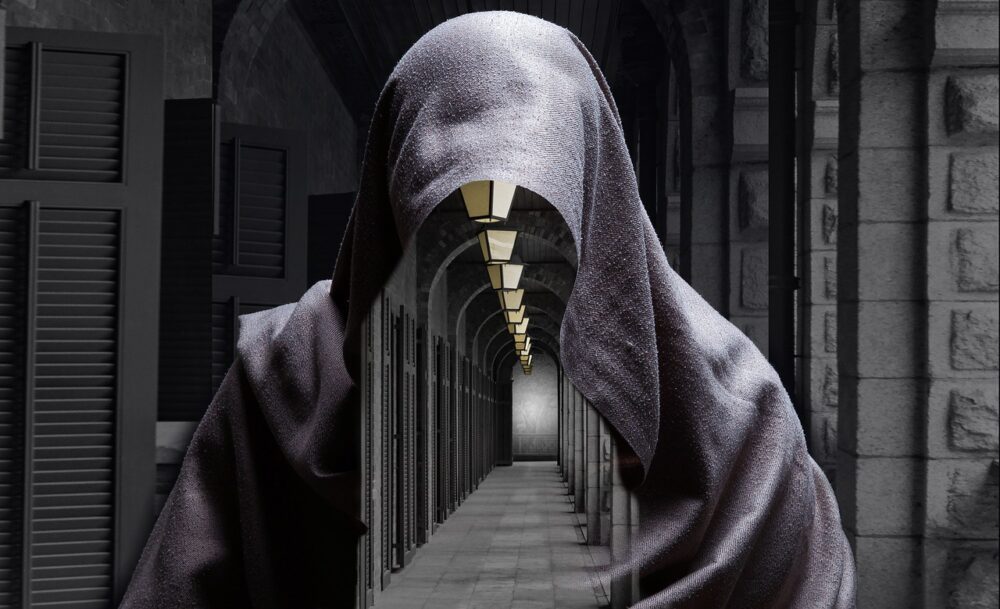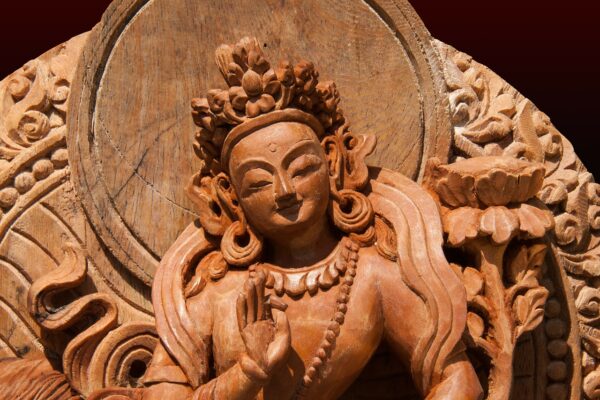
Whenever there are aspects of ourselves that we repress, reject, and deny, they get split off from our conscious awareness and end up in the shadow. The shadow is actually a place within the psyche where the light of consciousness doesn’t shine. These repressed parts of ourselves are not necessarily evil, and there are different reasons why they end up in the shadow. It can be because of trauma, certain needs that perhaps were never met, or simply because of how we define and protect our self-concept or ego by rejecting certain traits and only identifying with others.
1. Self-Deception & Ego
We lie to ourselves mainly because we want to preserve a certain self-image of who we are. Our self-image or idea about who and what we are can get quite complex throughout life. We can attach our self-identity to many ideas, traits, perspectives, people, and things we like and create a considerable web of complex attachments. But letting go of these attachments takes effort and cannot be easily done or understood by anyone. It requires a certain level of self-awareness or at least the desire to work on oneself and be open to expanding our consciousness.
When it comes to self-deception, we must remember that being honest with other people can be relatively easy, but being honest with ourselves is a lot more complicated. And it is because we often don’t want to look at the truth of how and who we are. Interestingly, when we lie to other people, we know that we are lying, but when lying to the self, we don’t know that we are doing so. We are aware of this self-deception at a deep level, but we fear facing that aspect of reality, so we ignore things in reality and push them away from our experience.
By lying to ourselves, we try to prop ourselves up as that particular person, and we lie about our emotions and how we truly feel about ourselves and others. And all of this is done in the service of maintaining our self-concept. In this case, the best thing to do is not to focus on preserving, maintaining, and protecting our self-image, and once that doesn’t become our focus, we allow other traits we repress to come back into our awareness. This is what we call ego-transcendence.

2. Your Self-Worth
You can never prove your self-worth to yourself through contrast with other people by putting yourself in a position of superiority. There are hidden motives for proving our self-worth to ourselves through contrast with others, and one of them could be our fear of inferiority. If we cultivate genuine self-love, all these hidden motives come back to our awareness and dissipate as we become honest with ourselves by facing or simply admitting those deeper issues.
The more we identify with a simple idea such as “I am spiritual, therefore more deserving of existing than you are,” or “I am rich, therefore better than you are,” we fortify those ego attachments. If we cultivate self-love, our self-worth won’t depend on comparisons or self-concepts that we continue to maintain, which can also be negative for us. If I say I am giving, therefore, I will give and give and give; this identification can be destructive because of those taking advantage of your giving nature, leaving you feeling depleted and resentful in the end.
It’s vital that we widen our self-concept to hold space for opposites and polarities to reconcile within our awareness and re-integrate those parts we fear because we label them as undesirable. The less we try to preserve ego structures in the mind by holding space for opposites within ourselves, the more we can feel whole and increase our light or consciousness. For instance, if you hyper-identify with passivity because of your peaceful mindset, you must also hold space for aggressiveness. This way, you can integrate your assertiveness or other positive qualities to bring more harmony between yourself and others.
3. Your World Views & Ego
Due to the role we choose to play in society, we have our own unique set of world views. For instance, a yogi will surely have different world views than a politician. Or a salesperson will have a different set of unique world views than an artist. All these world views serve to protect and preserve those ego structures discussed previously. So, what happens is that anything that will threaten our world views, in reality, will threaten our ego identification.
The truth is that everyone is indoctrinated into a particular idea about the way the world is and how the universe works. So, ultimately, anything within us that falls outside the range of our worldview or any aspect of reality that falls outside the range of our worldview might feel quite threatening to our ego. By understanding our ego and worldview identifications, we can become aware of that same pattern of saying I am this way, and I am not that way. Or reality is this way and not that way, thus putting on blinders to any aspects of ourselves that might threaten our identification with the ego.

When it comes to re-integrating repressed parts of ourselves because of worldview preservation, we have to find out what our worldview is in the first place. We have to be able to see what we are identifying with so strongly and the emotional reasons that underlie that identification. If certain interpretations of reality rub us the wrong way, we have to look and see emotionally why that rubs us the wrong way. Often we will see it is because of ego preservation. In order to re-integrate parts of the personality that are being kept away because of world views, we have to be more comfortable with uncertainty, connect to that sense of not knowing everything, and recognize that any understanding of reality can never be 100% definite. So in holding space for the uncomfortable emotions surrounding uncertainty and embracing the mysteries of reality, we can connect with those aspects that have been repressed due to worldview identifications.
Don’t miss this post here!

